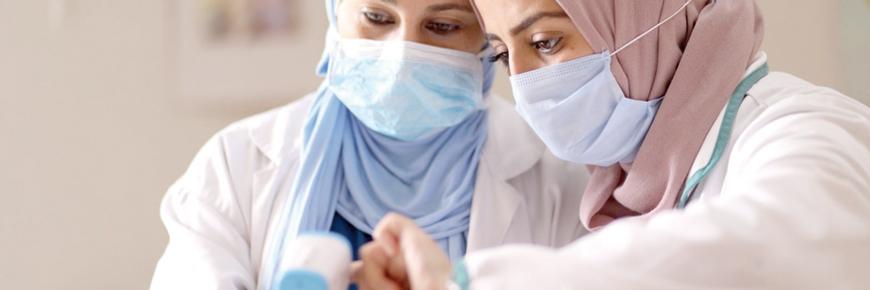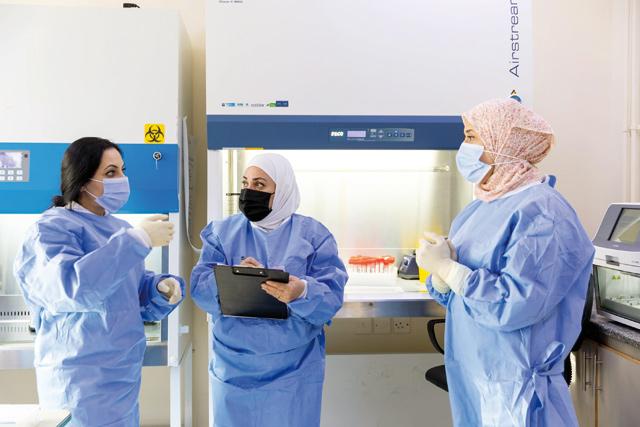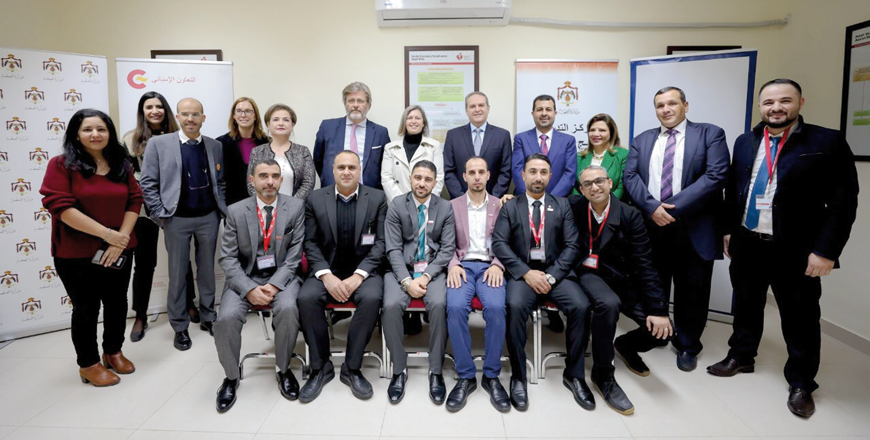You are here
USAID project to provide avenue for healthcare professional development
By Batool Ghaith - May 21,2022 - Last updated at May 21,2022

Photo courtesy of USAID Jordan website
AMMAN — USAID’s Local Health System Sustainability (LHSS) project, which began 2019 and will run until 2023, will improve the capacity of healthcare providers to deliver quality health services by establishing a mandatory “Continuing Professional Development System” for health professional licence renewal.
According to the USAID, until 2018 the Kingdom had no national system by which healthcare providers could continue professional development to advance their skills and renew their licences to practise.
The LHSS project assisted the Ministry of Health by improving the capacity of frontline healthcare professionals and final-year nursing and medical students to respond to the COVID-19 crisis, according to a USAID statement sent to The Jordan Times.
“The activity also supported Jordan’s COVID-19 diagnostic capacity and addressed systematic gaps in Jordan’s laboratory network for infectious disease detection, which helped to increase Jordan’s PCR testing capacity from 500 tests per day at the start of the pandemic to over 65,000 tests daily,” USAID stated.
The LHSS project also supported the provision of intensive care for severe and critical COVID-19 cases, in addition to supporting the government to create a “Home Care Call Centre” to provide care advice for patients with mild cases recovering at home, USAID said.
LHSS provided the ministry with a unified database of private healthcare professionals trained to treat COVID-19 and a linkage tool with the ministry’s Human Resources for Health database.
Over the next two years, the LHSS project will advance Jordan’s national continuing professional development system and will also continue to support Jordan’s laboratories and staff to improve the speed and accuracy of testing, including genomic sequencing to identify possible variants and mutations in viruses, according to USAID.
Regarding gender, LHSS has developed tailored training on gender perspectives for frontline health workers and led a study on the impacts of the pandemic on female frontline health workers as for many, their work-life balance became more difficult, USAID told The Jordan Times.
USAID also indicated that the COVID-19 Home Care Call Centre was staffed by over 70 per cent women. The centre allowed healthcare staff to work from home to provide care advice, referrals, follow up with COVID-19 vaccine recipients and disseminate vaccine encouragement messages, noting that to date, the call centre has conducted over three million calls.
“USAID and Jordan have partnered with the health sector for approximately 70 years. Despite high population growth, ageing, overcrowded health facilities, and hosting a significant number of refugees, Jordan has proven itself to be a regional leader in health,” USAID stated.
USAID invests approximately $40 million annually towards four objectives, improving health service use and quality, particularly advancing maternal and child health and family planning services, working with the Ministry of Health to strengthen Jordan’s health systems, modernising infrastructure and supporting Jordan’s national COVID-19 response plan.
USAID has renovated and expanded over 350 health facilities to increase the capacity and the quality of care, including the emergency, ICU, and surgical departments at Al Bashir Hospitals, and Princess Rahma Hospital, according to the agency.
Related Articles
AMMAN — The Ministry of Health, in cooperation with the Local Health System Sustainability (LHSS) Project, funded by the United States Agenc
AMMAN — The United States, through the United States Agency for International Development (USAID), on Sunday announced $4.7 million in urgen
AMMAN — The Life Support Programmes Training Centre, an initiative of the Ministry of Health, with facilities in Amman, Irbid and Kara
















